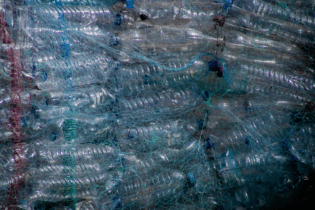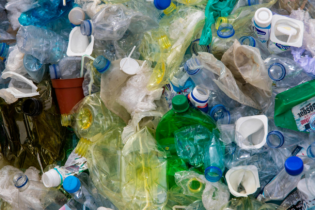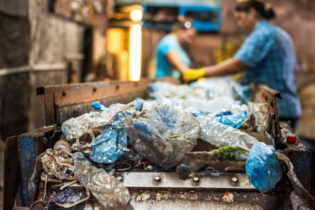South Africans living in urban areas are not big on recycling and unless there is a major mindset change in the next four years the country could find itself having to fork out a lot more money to have refuse separated and removed.
Water and Environment Affairs Minister Edna Molewa has set 2016 as the target date for implementation of the national waste management strategy as part of the Waste Act. This should see far less refuse going into landfills and more and more being re-used and recycled. But it’s going to be “a daunting task” for local authorities, responsible for waste collection and disposal as well as creating public awareness around the requirements of the Waste Act. So says CSIR principal researcher Suzan Oelofse in the wake of two surveys by the Pretoria-based research and development organisation. One study revealed only 3.3% of the country’s urban population regularly recycled household waste. Another showed that of the estimated 19 million tons of municipal waste generated nationally last year, about a quarter was mainline recyclables such as glass, paper, tins and plastic. “Separating recyclables at household level is a requirement of the Waste Act. The national waste management strategy requires all metro municipalities, secondary cities and large towns have to initiate programmes for waste separation at source in four years time. “Participation of households will be crucial to achieving the 2016 target. The survey shows municipal authorities face a daunting task in creating public awareness in this regard,” she said.Wilma Strydom, waste management for development research group researcher, said it was “alarming” that over 60% of the households surveyed did not know where to dispose of household recyclables. Also worrying is the majority of survey participants said they did not know what to recycle.
“The survey does not paint a positive picture about urban South Africans’ attitude and behaviour when it comes to recycling. Over 73% said they did not recycle at all. About 27% reported some recycling and only 3.3% said they sorted most or all of five selected recyclables and recycled on a frequent basis.” A positive is South Africans “might” start recycling if it is made convenient. “A two bag system simply separating dry from wet waste like food scraps combined with a regular pavement collection service would create the best opportunity to mobilise South Africans into the recycling habit. “Communication and awareness campaigns with continued research to understand the drivers of recycling behaviour and how to motivate recycling are also necessary.” Source: TNA




